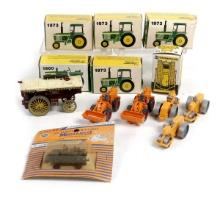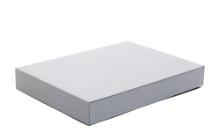16h 36m Left
Collectibles (20), John Deere Bank, John Deere Related Glasses (10), John D$10.00{"message":"In _app.tsx child of Layout","renderCount":1}
John Penn Writes to Younger Brother Thomas
Lot Closed
Auction by Keno Auctions
This item is in New York, NY
Similar Items
Overview of John Penn Writes to Younger Brother Thomas
Item Details
John Penn Writes to Younger Brother Thomas About Their Father in His Black Cap, and Their Mother’s Chocolate Recipe
“all Relations have much as they ware & give their Dear Love to Father & Mother…”
Fifteen-year-old John, having just left the Penn household in Ruscombe, England, writes home. He mentions his mother’s cooking and the well-documented family love of chocolate. The recipient, John’s younger brother, Thomas Penn, who later owned ¾ of William Penn’s proprietary interest in Pennsylvania, practices signing his name on the address leaf. The “Black Cap” referred to in John’s postscript is a reference to the famous Quaker hat. Quakers, as a sign of their egalitarianism, refused to take their hat off for anyone, regardless of societal rank. “Addam” was William Penn’s nickname, a reference to the biblical first man.
JOHN PENN. Autograph Letter Signed. Bristoll, 4 Decem: 1715. 1 page, with autograph address and six examples of THOMAS PENN’S signature on verso.
Estimate: $15,000- 30,000
This marks the earliest known written exchange between two sons of William Penn and Hannah Callowhill, John and Thomas. At this point, John was fifteen years old and Thomas thirteen. Their father, the founder of Pennsylvania, was largely incapacitated after suffering two strokes in 1712. The Penns split their time between the Callowhill estate in Bristol, where Thomas was born, and Ruscombe, a manor house rented by William Penn. At Ruscombe lived William and Hannah, their children John, Richard, Dennis, and Thomas, and William’s children from his first marriage. The struggle between Hannah Penn and her sons, and William Penn, Jr., for control of Penn’s estate lay in the future. John Penn had just begun to live with the Callowhills in Bristol in order to apprentice as a merchant, and Hannah encouraged him to write to his younger brother.
Complete Transcript Bristoll 4 Decem:
1715
Dear Brother
I Last Post recd thy letter but am a sham’d to think how far I am in thy Debt nor know what Excuse to make, but must Wholy Reley on thy Mercy knowing it to be boundless to forgive Past offences upon Promise of being better for time to Come, as to the Charg of the Chacoletts making I writ to mother in y Last but as to the P[art] Rasburys that Came w[it]h the oyster [loss] sent it to mother but think it would [be] better if it was Boyl’d up again which she would have done but had not time, all Relations here much as they ware & give their Dear Love to Father & Mother wch wth my Duty, and Dear Love to thy Self is all at Presant from
Thy very affect & Lov
Brother
John Penn
Pray Give
My Respects
To the Reverant
Old Gentleman
That usually wares
A Black Cap
& our old Father
Adam
[address:] John Penn / 4 Hber 1715 / to pay more /
Mr Thomas Penn / Doctor of Phisick / at Ruscombe / Near Reading / 3 in Berks
[on margins in Thomas Penn’s hand:] his own name, signed in six different fashions, at the age of thirteen.
John Penn (1700-1746), William Penn’s son, called “the American” because he was born in Philadelphia, though he remained for less than a year. In the complicated settlement of his father’s will, John received half of the proprietorship of Pennsylvania. John went back to Pennsylvania in 1734, attending a few meetings of the provincial council before returning to England a year later. He died with no heirs, and left his rights in Pennsylvania to his brother Thomas.
Thomas Penn (1702-1775), proprietor of Pennsylvania. In 1718 his father died, leaving the proprietary interest in Pennsylvania to his widow as executrix for their four sons. This was contested until 1727, after she and the youngest son, Dennis, had died, at which point the eldest son, John, received half the proprietary, and Thomas and Richard each one-quarter. Thomas spent most of his adulthood in London but directed his proprietary interest in Pennsylvania carefully. His greatest influence was in appointments and in the survey and sale of lands – he is known for his role in the infamous “Walking Purchase” of 1737, whereby the Delaware Indians were forced to agree to a fraudulent land deal surrendering much of their homeland along the upper Delaware River. Penn was an important but polarizing figure in Pennsylvania affairs – Benjamin Franklin organized the Quaker Party in opposition and sought to have the King declare Pennsylvania a royal colony. One major sticking point was Penn’s unwillingness to allow the colonial assembly to tax family lands.
Payment
Please contact the auction company for payment instructions.
CheckMoney Order
Auction Details
Auction House

Keno AuctionsNew York, NY





